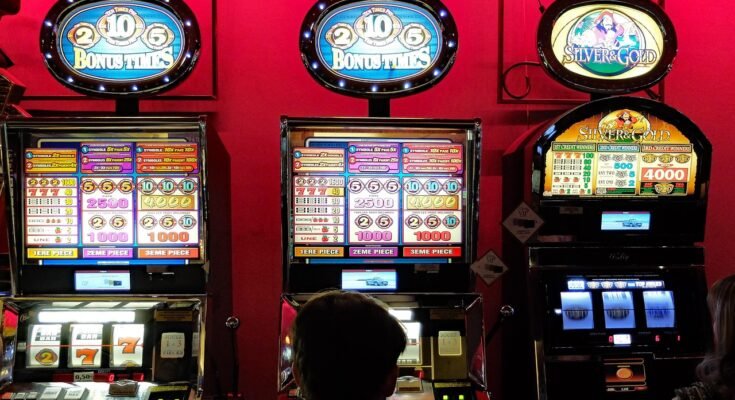Rabat, Morocco – In response to growing concerns over the rise of unregulated online gambling platforms, the Kingdom of Morocco has announced a comprehensive new policy aimed at preventing online slot gambling across the country. The decision marks a significant step toward tightening digital regulation and protecting citizens—especially youth—from the dangers of addictive online gaming.
Growing Popularity of Online Slots in North Africa
Like many countries experiencing rapid digital transformation, Morocco has seen a notable increase in the number of citizens accessing online gambling services. Among the most prevalent and problematic forms of digital gaming are online slot bet 200 machines, which are often presented as harmless casino games but can quickly lead to financial loss, addiction, and social disruption.
Online slot games are easy to access via mobile phones, social media links, or downloadable apps. Many of these platforms operate illegally, often hosted on offshore servers, and are not subject to Moroccan law. They use aggressive marketing tactics, including Arabic-language promotions and influencer endorsements, to lure local users into betting real money.
According to a recent study conducted by Morocco’s National Telecommunications Regulatory Agency (ANRT), there has been a 40% year-over-year increase in user visits to gambling-related websites, with slot machine games being among the most commonly accessed.
New National Policy to Tackle Digital Gambling
To address this growing threat, Morocco’s Ministry of Digital Transition and Administrative Reform, in collaboration with the Ministry of Interior and the High Authority for Audiovisual Communication (HACA), unveiled a multi-layered national policy to curb online gambling—particularly the unregulated online slot market.
Under this new policy, the government will implement strict monitoring of internet traffic to detect gambling-related platforms, block access to illegal websites, and penalize operators who target Moroccan users. The policy also extends to players, warning that those found participating in illegal gambling could face administrative fines or other legal consequences.
A dedicated cyber-monitoring unit will be established under the Ministry of Interior, tasked with identifying digital casinos, tracking advertising across social media and search engines, and reporting violations to relevant judicial authorities. Internet service providers (ISPs) will be legally obligated to cooperate in the blocking of domains and URLs associated with online slot games.
Legal and Financial Implications
Moroccan law traditionally prohibits unauthorized gambling, with physical betting facilities tightly regulated and limited to state-licensed venues such as La Marocaine des Jeux et des Sports (MDJS). However, the digital realm has been a grey area until now.
The new policy aims to clarify legal boundaries, stating explicitly that any form of online gambling—especially slots—offered without national approval will be deemed illegal. International companies offering gambling services to Moroccan residents without authorization will be subject to domain seizures and payment processing blocks.
The government is also coordinating with the Bank Al-Maghrib (the central bank) and national financial institutions to monitor suspicious transactions linked to gambling platforms. E-wallets and international payment gateways often used to fund online slot gacor accounts will face tighter scrutiny. The ultimate goal is to choke off the financial lifeline of illegal gambling operators and prevent the outflow of national currency to offshore entities.
Public Education and Digital Awareness
In addition to enforcement, Morocco is prioritizing public education as part of its broader strategy. A digital literacy campaign is being developed to raise awareness among youth and families about the risks of online slot games. The initiative will include television programs, online video content, and school-level education modules aimed at identifying and avoiding illegal gambling platforms.
Religious and community leaders are also being enlisted to support the campaign. Given Morocco’s cultural and religious stance on gambling—viewed largely as a vice—the messaging will appeal not only to legality but also to moral and social values usaha188.
Health officials are also working on increasing access to counseling and rehabilitation services for those already affected by gambling addiction. New partnerships with mental health NGOs are being explored to provide hotlines and support centers across the country.
Regional and International Cooperation
Morocco is not tackling this issue alone. Officials have confirmed ongoing discussions with Europol, Interpol, and neighboring countries such as Spain, France, and Algeria to collaborate on intelligence sharing and cross-border enforcement.
Given that many of the illegal online slot platforms are hosted abroad, Morocco’s international strategy includes agreements with foreign internet platforms, including app stores and payment processors, to remove or restrict access to gambling services in Moroccan digital space.
A Model for Other African Nations?
With this move, Morocco becomes one of the first North African nations to roll out a comprehensive, technology-driven policy specifically targeting online slot gambling. Analysts suggest that if successful, Morocco’s approach could serve as a model for other countries in the region facing similar challenges with unregulated digital gaming.
The government has pledged transparency in implementing the policy and plans to publish periodic reports detailing enforcement actions, blocked sites, and educational outreach impact.
Conclusion
Morocco’s announcement signals a strong stance against the unchecked rise of online slot gambling. Through a combination of legal reform, technological enforcement, financial oversight, and public education, the country is working to shield its citizens from a growing digital threat. As the policy begins to take effect, the world will be watching how Morocco navigates the complex balance between digital innovation and regulatory control.




